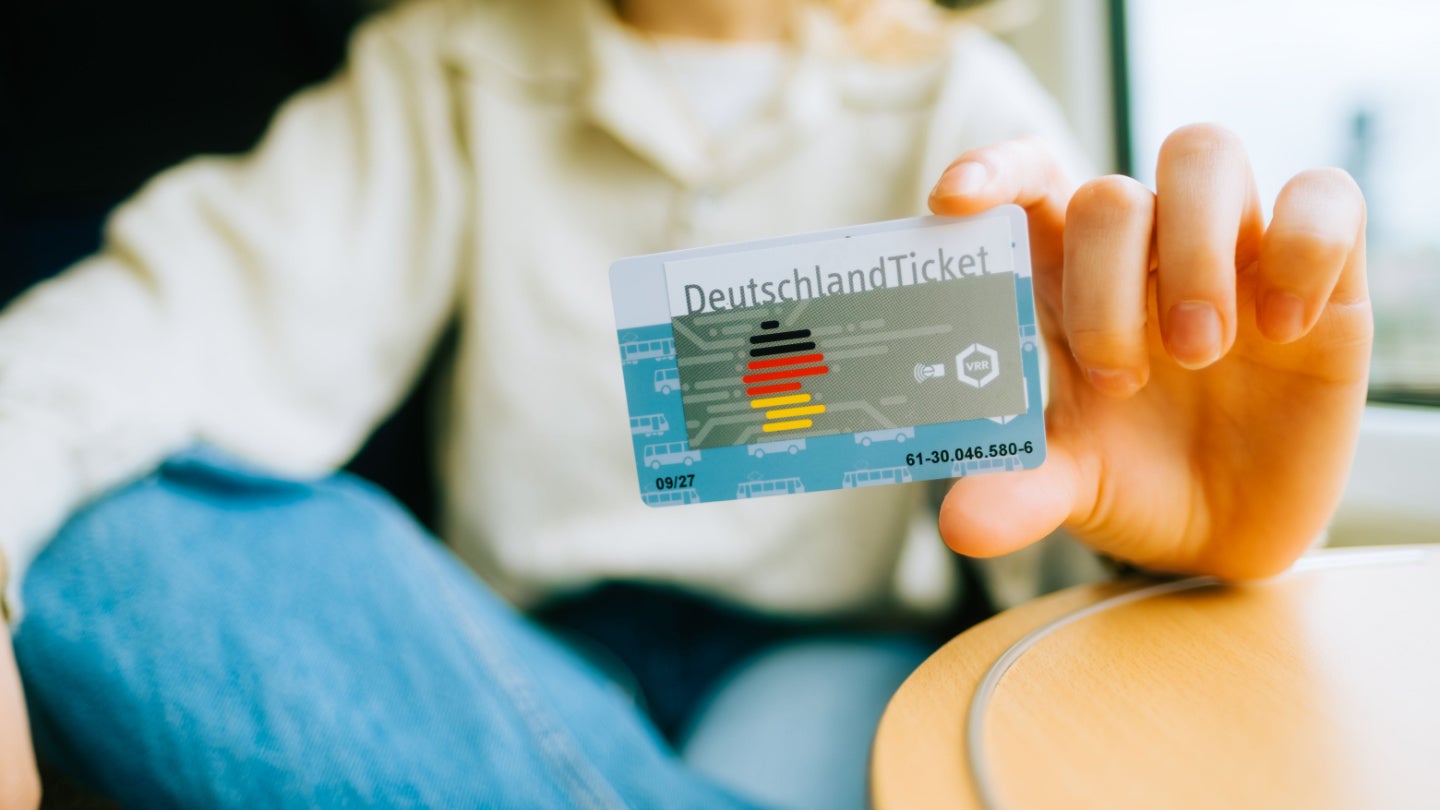
The federal and state governments of Germany have come to an agreement that will see the continuation of the country’s unlimited rail travel ticket, the Deutschlandticket, through 2024, though some groups have called for greater clarity on future financing for the scheme.
Costing just €49 ($52.44), the ticket was introduced in May and allows holders access to unlimited use of regional and local transport in the country, but had been the focus of concerns that funding to compensate bus and rail operators for financial losses would need to be continued to ensure its continuation.
The agreement to continue funding was agreed at the Ministers President’s Conference between federal chancellor Olaf Scholz and state premiers and will see the €700m funding not used in 2023 carried over to 2024 alongside a €1.5bn contribution each from the federal and state governments.
Transport Minister Volker Wissing celebrated the agreement and said: “The federal government stood and stands by financial agreements. It is now up to the states to increase subscription numbers and consistently create simple digital structures.”
Despite the successful funding agreement, some groups such as the German Pro-Rail Alliance have called on the governments to now make a deal on permanent financing and framework for the scheme.

US Tariffs are shifting - will you react or anticipate?
Don’t let policy changes catch you off guard. Stay proactive with real-time data and expert analysis.
By GlobalDataDirk Flege, managing director of the alliance, said that the ticket must be affordable to provide momentum to the “transport transition”, he said: “It is good that the Deutschland ticket is continuing, but it’s bad that central questions remain unanswered.
“The federal and state governments must agree on an overall package right at the beginning of the year, which, in addition to long-term financing, also includes the introduction of a nationwide social ticket and the urgently needed expansion of public transport services.”
The concerns about the continued future of the ticket were also echoed by the German Association of Transport Companies (VDV) which said that the newest agreement did not provide a “final and complete answer” and would not provide enough funding for the whole of 2024 according to its forecasts.
VDV President Ingo Wortmann said: “What is now of central importance is what the agreed concept for the further development of the Deutschlandticket will actually look like in order to make the ticket a long-term success. We also see this as a mandate for the industry to submit suitable suggestions.”
The Deutschland ticket has been seen by many as a positive step towards encouraging people to use public transport more as both a good financial and environmental decision and could soon be copied in other European companies after French transport minister Clément Beaune revealed plans for his country’s own version of the ticket.



